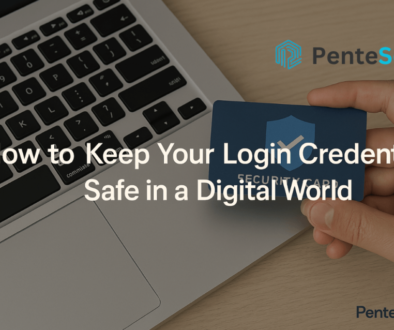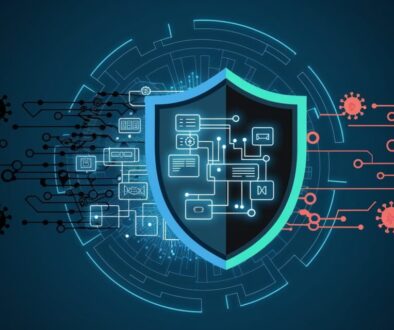Essential Tips for Enhancing Online Security and Privacy
In today’s interconnected world, enhancing online security and privacy has become paramount for individuals and businesses. As our lives become increasingly intertwined with digital platforms, safeguarding our personal information and digital assets has never been more critical. This comprehensive guide will explore essential strategies for enhancing online security and privacy, empowering you to navigate the digital landscape with confidence and peace of mind.
Understanding the Foundations of Online Security and Privacy
Enhancing online security and privacy begins with a solid understanding of these fundamental concepts. Online security refers to protecting digital systems, networks, and data from unauthorized access, attacks, and damage. Conversely, privacy focuses on controlling access to personal information and maintaining confidentiality in online interactions.
To effectively enhance your online security and privacy, it’s crucial to recognize the interconnected nature of these concepts. A robust security framework supports privacy efforts, while strong privacy practices contribute to overall digital security. You can create a comprehensive shield against threats and unwanted intrusions by addressing both aspects simultaneously.
Fortifying Your Digital Fortress: Password Management and Authentication
Creating and managing strong passwords is a cornerstone of enhancing online security and privacy. Follow these best practices to bolster your password defenses:
Crafting Unbreakable Passwords
- Aim for a minimum length of 12 characters
- Incorporate a mix of uppercase and lowercase letters, numbers, and special symbols
- Avoid using personal information or common words
- Consider using passphrases: a string of random words that are easy to remember but difficult to guess
Leveraging Password Managers
Implement a reputable password manager to generate, store, and autofill complex passwords across your accounts. This tool allows you to use unique, strong passwords for each service without the burden of memorization.
Embracing Multi-Factor Authentication (MFA)
Enable MFA wherever possible to add an extra layer of security. This typically involves combining something you know (password) with something you have (smartphone) or something you are (biometric data).
Securing Your Digital Devices: A Holistic Approach
Enhancing online security and privacy extends beyond passwords to encompass the devices you use to access the internet. Implement these strategies to fortify your hardware:
Regular Software Updates
Keep your operating systems, applications, and firmware up-to-date to patch known vulnerabilities and protect against emerging threats.
Robust Antivirus and Anti-Malware Protection
Install and maintain reputable security software to defend against viruses, malware, and other malicious programs.
Firewall Configuration
Enable and properly configure firewalls on all your devices to monitor and control incoming and outgoing network traffic.
Encryption
To protect data at rest, use full-disk encryption on your devices, especially on portable devices like laptops and smartphones.
Navigating the Web Safely: Browser Security and Privacy
Your web browser is your primary interface with the internet, making it a critical component in enhancing online security and privacy. Implement these measures to browse safely:
Secure Connections
Always look for the padlock icon and “https://” in the URL bar. These indicate a secure, encrypted connection.
Privacy-Focused Browser Extensions
Install extensions that block trackers, ads, and scripts to minimize data collection and improve privacy.
Regular Cookie and Cache Clearing
Periodically clear your browser’s cookies, cache, and browsing history to limit the amount of data stored about your online activities.
Virtual Private Network (VPN) Usage
Employ a reputable VPN service to encrypt your internet traffic and mask your IP address, especially when using public Wi-Fi networks.
Safeguarding Your Digital Identity: Social Media and Online Presence
Social media platforms can be significant sources of personal information exposure. Take these steps to enhance your privacy on these platforms:
Privacy Settings Optimization
Review and adjust the privacy settings on all your social media accounts regularly to control who can view your profile, posts, and personal information.
Mindful Sharing
Be cautious about the information you share online, avoiding sensitive details like your full birthdate, home address, or phone number.
Third-Party App Permissions
Regularly audit and revoke unnecessary permissions granted to third-party applications connected to your social media accounts.
Digital Footprint Management
Periodically search for your name online and take steps to remove or limit access to sensitive information that may be publicly available.
Fortifying Communication Channels: Email and Messaging Security
Email and instant messaging remain primary targets for cybercriminals. Implement these strategies to enhance security in your digital communications:
Phishing Awareness
Learn to identify phishing attempts by scrutinizing sender addresses, being wary of unexpected attachments, and verifying requests for sensitive information through alternative channels.
Email Encryption
Consider using end-to-end encryption tools for sensitive email communications to protect message content from unauthorized access.
Secure Messaging Apps
Opt for messaging applications with end-to-end encryption and a strong track record of protecting user privacy.
Conclusion
Enhancing online security and privacy is an ongoing process that requires vigilance, education, and proactive measures. By implementing the strategies outlined in this guide, you can significantly reduce your digital risk profile and protect your sensitive information from prying eyes and malicious actors. Remember, the digital landscape is constantly evolving, so stay informed about emerging threats and best practices to maintain a robust defense against cyber risks. Your online security and privacy are invaluable assets in the digital age – invest in them wisely and consistently to ensure a safer, more private online experience.
Call to Action
We invite you to subscribe to our monthly newsletter and follow us on our Facebook, X, and Pinterest channels for more insights and updates on cybersecurity trends and best practices. Our blog provides valuable information and resources to help you stay informed and prepared against evolving threats.
Engage with our community to share knowledge, ask questions, and stay connected with industry developments. Visit our About Us page to learn more about who we are and what we do. Furthermore, please reach out through our contact page if you have any questions. You can also explore our services to discover how we can help enhance your security posture.
Frequently Asked Questions
Instead of changing passwords regularly, create strong, unique passwords and use a password manager. If you suspect a breach, change passwords immediately.
Yes, reputable password managers use strong encryption and are generally considered safe. They’re much more secure than reusing passwords or writing them down.
While VPNs significantly enhance privacy, they’re not a complete solution. You still need to practice safe browsing habits and implement other security measures.
Check websites like HaveIBeenPwned.com to see if your email has been involved in known data breaches. Also, watch for unexpected account activity or emails sent from your account that you don’t recognize.
Immediately change passwords for all your accounts, contact your bank and credit card companies, and consider placing a fraud alert on your credit reports. Report the incident to relevant authorities and monitor your accounts closely for suspicious activity.




